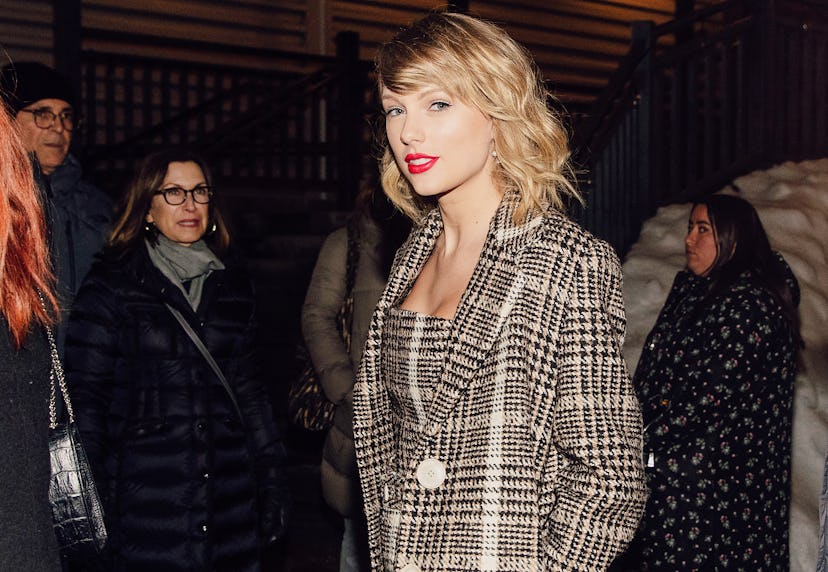Taylor Swift’s Miss Americana Is Not a Documentary

The new Taylor Swift documentary, Miss Americana, begins with the musician playing a grand piano while a kitten paws her way across the keys. The scene is sweet and childlike—an effect accentuated by the fact that she’s wearing a loose pair of white overalls—much like the persona she’s cultivated since she released her first single at age sixteen.
Swift then makes her way over to a pile of old journals, perching in a windowsill while she pokes fun at the earnest, motivational notes her teenage self wrote on the covers. The camera lingers while she flips through the pages, but what’s actually written on them appears blurred out.
Miss Americana premiered at the Sundance Film Festival last week, and begins streaming on Netflix on January 31st. Directed by Lana Wilson (her docs The Departure and After Tiller were both nominated for Independent Spirit Awards) and produced by the team behind 20 Feet From Stardom, the film is billed as a “raw and revealing look” at the superstar. While there are moments of genuine tenderness, humor and reflection, it offers little more than a glowing, milquetoast rehash of events we’ve already seen play out on social media.
The movie’s closest predecessor is Beyoncé’s Life Is But a Dream, which was recently referred to as a “a documentary in name only” and a “celebrity vanity project” by New Yorker TV critic Doreen St. Félix in her review of another Netflix celebrity vehicle, Gwyneth Paltrow’s The Goop Lab. The same characterizations could be applied to Miss Americana. It’s a documentary the same way a reality television is a “documentary”—we know this stuff all technically happened, but the environment is so highly controlled that the really interesting stuff feels just out of reach.
No one other than Swift and her mother, Andrea, ever address the camera directly. Few of her collaborators are even named. It’s like watching A Star Is Born stripped of tragedy or sex: a montage of glittering concert footage, hotel room musings and career milestones. Swift’s most vulnerable, human moments, when she speaks frankly about her struggle with disordered eating and her mother’s battle with cancer, feel like they’re given short shrift in favor of multiple long, dramatic segments about her feud with Kanye West.
What the film does most effectively—and perhaps inadvertently—is expose the strange, lonely core of superstardom: Swift’s life appears to be mostly spent surrounded by people on their laptops, drinking wine with her publicist, working out lyrics in windowless studios, and eating meals out of clamshell containers on private planes. A one-on-one dinner at home with a childhood friend has an uncanny, Real Housewives air, both of them visibly nervous while Swift grapples with the looming specter of turning 30. Swift elegantly handles the bizarreness of a backstage meet and greet, maintaining her composure as a painfully nervous couple gets engaged in front of her and a pair of Japanese teenagers collapse into her arms in tears.
A frustrating theme in the film is the insistence that being seen as “polite” and “good” was Swift’s only option as a former country singer. The backlash to the Dixie Chicks’ criticism of President George W. Bush (complete with terrifying archival news footage) is cited as Swift’s reason for never speaking out politically, but the framing of the issue fails to pay homage to the many artists who have made activism a central part of their platform, or acknowledge the obvious cultural shifts that have happened the years since. For Swift’s superfans, particularly the younger ones, Miss Americana may feel like a sweet, surreal treat—lots of front-facing iPhone camera footage gives it the occasional Facetiming-with-your-best-friend vibe—but as a work of documentary filmmaking, it falls flat.